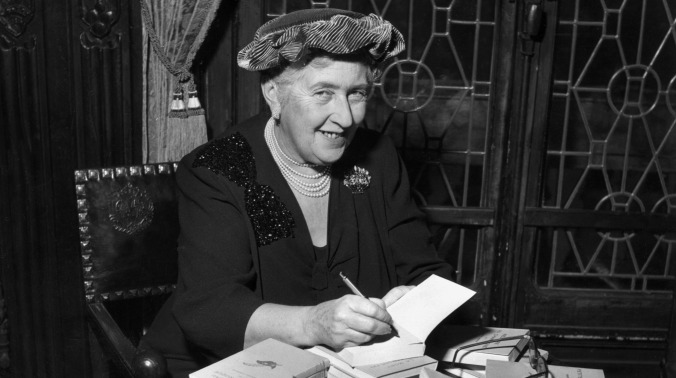Agatha Christie is the latest author to get a major sensitivity edit
Agatha Christie's Hercule Poirot and Miss Marple mysteries are reportedly being updated for modern audiences

If there’s one surefire way to rile up everyone on the entire political spectrum, it’s sanitizing the canonized works of long-dead authors. Whether it’s for reasons of anti-censorship, preserving history, or railing against the woke mob, many people have protested against editing out racism and xenophobia (among other sins) from literature. HarperCollins saw this happen with Roald Dahl and Ian Fleming and apparently thought, why don’t we give this a go with Agatha Christie?
According to The Telegraph, sensitivity readers have been employed to comb through Christie’s Poirot and Miss Marple mysteries written between 1920 and 1976. Passages from these novels have been “reworked or removed” to elide references to ethnicity or simply to omit physical descriptions altogether. Some of these instances are blatantly offensive, particularly by modern standards; Christie was notable for stereotypical depictions of Asian people, and the term “Oriental” is one that has been edited out of new editions. Other edited passages, as reported by The Telegraph, are less obvious in their offensiveness. For instance, “a black servant, originally described as grinning as he understands the need to stay silent about an incident, described as neither black nor smiling but simply as ‘nodding.’” Elsewhere, descriptions referencing characters as Nubian, “gypsy,” and “a Jew” have been removed from various novels.
Without having reviewed these texts in full as The Telegraph has reportedly done, it’s hard to tell where these changes are warranted and where the publishers may have applied an over-abundance of caution. Regardless, many readers have argued that to strip a text of its worst qualities is to dismantle important historical context. By contrast, Disney and Warner Bros. have included disclaimers on outdated material that contains racist or otherwise offensive caricatures, rather than censoring them altogether. (Hollywood by no means has a one-size-fits-all approach to this issue; see the removal of blackface episodes from streaming services.) In the case of Dahl, Penguin Random House came to a compromise to release both original versions and new, edited versions of his work. Fleming’s estate, meanwhile, stated that new edits were in keeping with the author’s intentions, as he had approved edits to offensive material in his lifetime.
Like Dahl and Fleming, Christie saw some of her most derogatory word choices changed in her lifetime. The bestseller And Then There Were None was infamously published in the U.K. as Ten Little N****rs (in other editions, Ten Little Indians), based on a British minstrel song repeated in the novel. Even in 1940, the title was too objectionable for publication in the United States, and the slur was largely removed from the text. As such, there’s a degree of precedent for these new edits. The updated editions are set to be released or have been released since 2020, according to The Telegraph, and some of these edits are apparently already present in digital versions of the novels.